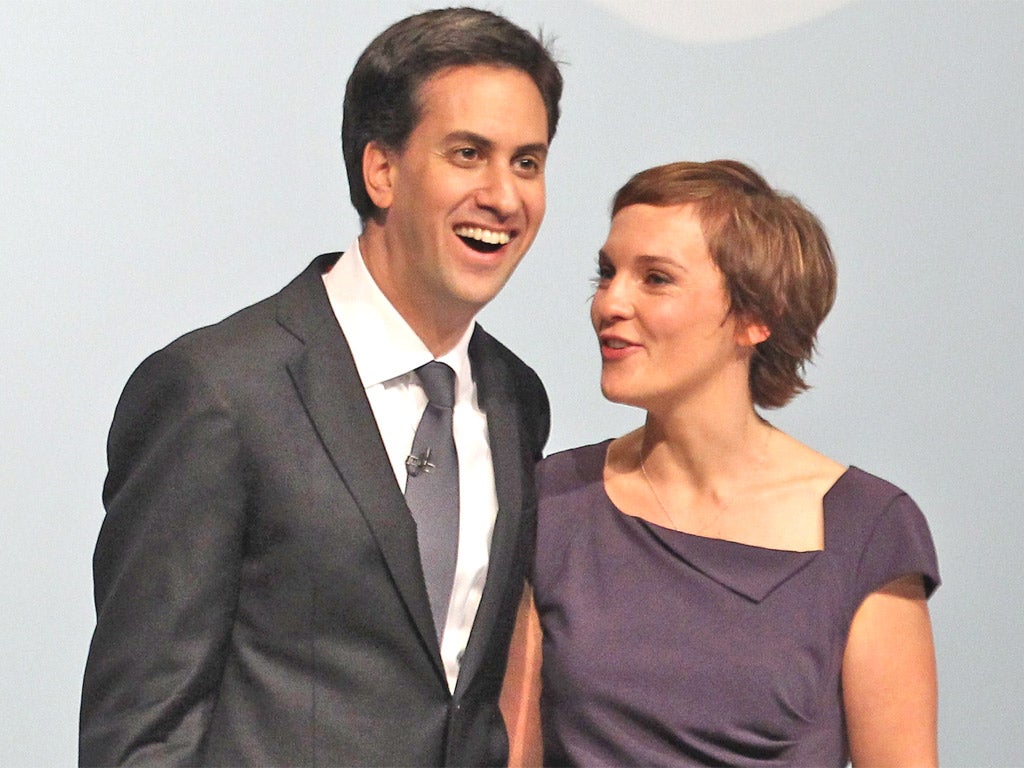A week is a long time in politics: what we've learnt in Liverpool
The party's performance shows they've come a long way, but they are still making basic mistakes. Oliver Wright reports

Your support helps us to tell the story
From reproductive rights to climate change to Big Tech, The Independent is on the ground when the story is developing. Whether it's investigating the financials of Elon Musk's pro-Trump PAC or producing our latest documentary, 'The A Word', which shines a light on the American women fighting for reproductive rights, we know how important it is to parse out the facts from the messaging.
At such a critical moment in US history, we need reporters on the ground. Your donation allows us to keep sending journalists to speak to both sides of the story.
The Independent is trusted by Americans across the entire political spectrum. And unlike many other quality news outlets, we choose not to lock Americans out of our reporting and analysis with paywalls. We believe quality journalism should be available to everyone, paid for by those who can afford it.
Your support makes all the difference.1. Ed Miliband has convinced most of his party that he's the right leader – but he's not convinced the country that he's a Prime Minister in waiting
The mood among party activists this week has been genuinely upbeat – this is not the Tory party under Iain Duncan Smith.
Miliband's promise to end decades of "fast-buck" capitalism hit a chord in the hall as did his move to distance himself from the years of New Labour. But the faithful are the easiest to convince and as The Independent's poll on Tuesday found the electorate are still far from convinced by Labour or their new leader.
This has caused concern in Liverpool – but there is no sense of crisis yet. New fixed-term parliaments mean they can't be ambushed by an early election and Miliband aides believe that as the economy continues to splutter and public sector cuts bite, Labour's message of a new kind of economy will resonate more and more.
2. Most of the press are implacably opposed to Ed Miliband and will pursue him in the same way as they did Kinnock and Foot
The Telegraph yesterday highlighted a poll which asked voters to compare political leaders to cars: David Cameron was a Jaguar and Ed Miliband was a Robin Reliant.
Meanwhile over at The Daily Mail the paper's leader described Mr Milband as having a "deficit of charisma that makes Greece's economic shortfall seem modest".
Any idea that the Murdoch press might come back to the Labour fold was put to rest by phone hacking leaving only The Guardian and Mirror toeing the party line this week.
How much this matters in the internet age is questionable – but any suggestion that Miliband will get a fair hearing for his ideas from the right-wing press over the next few years is now over.
3. Ed Balls is now the effective deputy leader of the Labour Party
Harriet Harman maybe deputy in name but this week proved that after Miliband, Ed Balls is undoubtedly Labour's biggest hitter. His conference speech was well received and he is beginning to lose his long standing reputation as a self-serving plotter. Balls also showed a touch of humility by admitting where Labour had made mistakes in the past and helped establish himself as a major figure on his own, right out of Gordon Brown's shadow.
4. Labour are making basic mistakes
Ed Miliband's big announcement that Labour would cut tuition fees from £9,000 to £6,000 was intended as a popular policy morsel to kick off conference. But it was amateurishly handled. Relevant ministers appeared not have been briefed and when pushed were unable to say if it would be implemented if they won power.
Student groups meanwhile condemned the party for backtracking on their initial opposition to raising fees at all. It was a similar story with Ivan Lewis's proposal on Tuesday that errant journalists could be "struck off" from the profession. Despite his speech being cleared by the leader's office – no one appeared to have read it closely and Miliband's aides were forced to go around rubbishing their own spokesman's idea.
5. The unions still hold a whip hand over the leadership
Miliband had wanted to start conference with an eye-catching motion giving the public more say in electing the next Labour leader. But the plan had to be watered down after Labour's union backers threatened to vote it down because they felt it would lessen their influence. The unions are currently providing around three-quarters of Labour's funding and until that changes Miliband has little room to force through measures to which they are opposed.
6. The filial psycho-drama is over
Last year, every speech and announcement at conference was seen through the prism of Ed and David – but this year the Miliband brothers and their relationship has not been a talking point. David's short and dignified appearance on Sunday was a clever move. It prevented the media from suggesting he was boycotting the conference while not allowing the photographers to take the coveted image of him looking bored/angry/sad.
Join our commenting forum
Join thought-provoking conversations, follow other Independent readers and see their replies
Comments